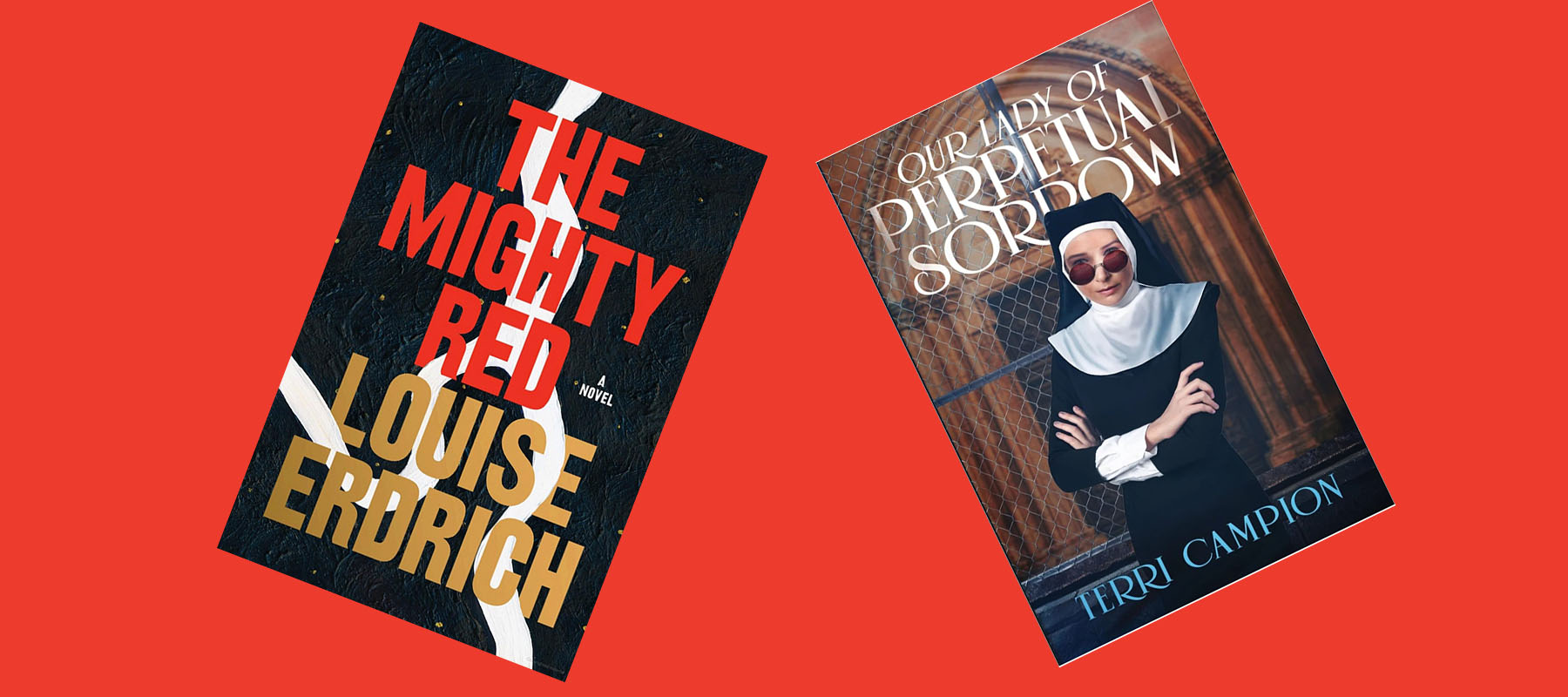The Mighty Red by Louise Erdrich

I visited Big Red Books, Nyack’s local bookstore, for book club in January and we read Louise Erdrich’s The Mighty Red. Coincidence? Yeah, no. Richie named the store for the big red couch in his living room. The novel is named for the Red River Valley of North Dakota, and for the region’s sugar beet farming, which supports the families portrayed in the book.
Buy on Amazon ~ Buy on Bookshop.org
Louise Erdrich is, as one of my book club members put it, one of the all-time great American writers. The Mighty Red is not “peak” Erdrich, but it’s a great read. Her mesmerizing, often wrenching, sometimes humorous style is all there, along with themes focusing on women’s lives, Native American culture meeting mainstream culture, environmental crisis, and the prime importance of soul to soul relationship.
Take Kismet Poe, for example, a Native teen torn between two lovers: Gary Geist, the local heartthrob and high school quarterback, tormented by flashbacks to a terrible accident, and Hugo Dumach, the “good guy,” brilliant, funny, and hardworking, who has sworn to surpass Gary’s relative wealth and win Kismet’s heart.
In the disastrous attempts at romance that ensue, Gary proposes three times. Kismet is having much better sex with Hugo, but he is so determined to prove himself that he never quite gets around to providing the simple warmth and togetherness Kismet craves. Erdrich sets up clear tension between these two would-be knights in shining armor. The question, though, is whether Kismet really needs either one. Gary may be battling unresolved trauma; Hugo’s beast may involve the working-class barriers to comfort and social prestige that his family has faced for generations. Neither are Kismet’s battles, though; she has plenty of her own, as the child of a beet hauler and a schoolteacher, who has grown used to making her own way.
As Kismet herself says at one point, “I don’t think this book is about the end of the world. . . . The end is about consolation.” The game is not about who saves who—it’s first about authenticity, and then about holding each other up in equal measure.
While Kismet and the other women portrayed in The Mighty Red are strong and courageous, they are definitely not perfect and not even always smart; but they own their lives and thrive. And I’ll never look at beets again without flashing on the many layers of life on a stressed planet that support their production.
Our Lady of Perpetual Sorrow by Terri Campion

A few years ago, I had the opportunity to work with playwright and author Terri Campion on a few short stories. They were very much in the development stage, as Terri worked from prompts in a generative workshop I facilitated at Manhattanville College. How pleased I was to hear that she had spun these and other work into a novel-in-stories, published by Willow River Press in 2023.
Buy on Amazon ~ Buy on Bookshop.org
Equal parts amusing and pensive, these stories about a girl growing up Catholic in the 1960s–1970s felt real and familiar to me from the start. Terri has provided a perfect snapshot of this volatile time of awakening, from traditional values to a culture of “liberation” as well as from the ancient practices of Catholicism to the more open-minded guidance of Vatican II.
From the moment that Cassie discovers she is old enough to go to school—Catholic school—she begins asking questions. “Where did the public school kids go when they died? Did they have their own special afterworld? If so, where was it in relation to heaven? In a lower part of the sky? And how was it decided who was born public and who was born Catholic?” The entire collection seeks to answer Cassie’s ongoing questions as she grows into her teens and, eventually, to a young woman. And there are some truly ludicrous things to question—like a First Communion dress with an inflatable petticoat—as well as some items often taken for granted that, upon examination, defy common sense—why, for instance, should a girl be forbidden from taking Saint Christopher’s name for her Confirmation? (“Why not?” Cassie protests to Sister George. “You have the same name as my uncle!”)
Enjoy this novel-in stories over a few days of cozy reading and afternoon tea!

You must be logged in to post a comment.